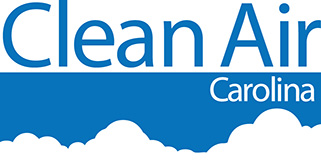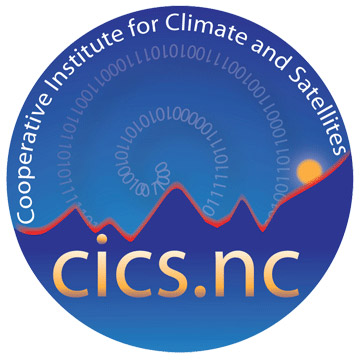Nov. 9: Climate and Respiratory Health – Focus Asthma
Clean Air Carolina, The Collider, Green Built Alliance, and CASE Consultants International are pleased to sponsor Climate and Respiratory Health – Focus on Asthma, along with collaboration from NOAA’s Cooperative Institute for Climate and Satellites, on Thursday, November 9th, at The Collider, in Asheville, North Carolina. This event brings together climate scientists, environmental health specialists, public health experts, technologists, and healthcare professionals to focus on the impact of the current and future weather and the environment on respiratory health.
The generous contribution of our sponsors allows us to offer student registration at discount. Students gain the opportunity to meet subject matter experts in the fields of climate and health. Professionals and students interested in nursing, global health, public health, environmental studies, or interdisciplinary studies in climate change and society gain insights into the future enviromental conditions effecting their chosen area of work.
Why climate? According to recent reports from the U.S. Global Change Research Program, including the Climate and Health Assessment, climate change exacerbates conditions that effect respiratory health in the United States. Climate change has already led to an increased frequency of large wildfires, as well as longer durations of individual wildfires and longer wildfire seasons in the western United States. Particulates from wildfires affect persons suffering from respiratory health problems. Additionally, warmer weather extends the pollen season, exposing asthma sufferers to longer periods of allergenicity. Warmer and wetter conditions resulting from climate change produce dampness and mold in US homes that are linked to approximately 4.6 million cases of worsened asthma.
Why asthma? Asthma is a major public health concern in the US. On an annual basis, asthma accounts for more than 10 million outpatient visits, two million emergency room visits, and 500,000 hospitalizations. More than 4,000 deaths each year are directly attributable to asthma, with 7,000 more deaths considered partially attributable to asthma. The death rate for children from asthma has increased by nearly 80% percent since 1980.
Climate change is therefore increasing both the extent and duration of trigger conditions for chronic asthma symptoms and asthma attacks. Participants learn from climate scientists on climate impacts on respiratory conditions, public health practitioners on case studies and the status of respiratory illness in North Carolina and the US, and technology providers on data and digital health applications. The agenda includes conversations with subject matter experts
Morning session – the science of climate and respiratory health
-
Kenneth E. Kunkel, Ph.D., Lead Scientist for National Climate Assessments, NOAA Cooperative Institute for Climate and Satellites, Research Professor, Dept. of Marine, Earth, and Atmospheric Sciences North Carolina State University
- Susan Anenbberg, Ph.D., studies the health implications of air pollution and climate change, from local to global scales. She has been a Co-Founder and Partner at Environmental Health Analytics, LLC, the Deputy Managing Director for Recommendations at the U.S. Chemical Safety Board, an environmental scientist at the U.S. Environmental Protection Agency, and a senior advisor for clean cookstove initiatives at the U.S. State Department, contributing author of USGCRP National Climate Assessment, Chapter 3, on climate, health, air qualityJesse Bell, Ph.D., – NOAA’s Cooperative Institute for Climate and Satellites, presents case studies of environmental triggers for asthma including smoke, dust, fungal spores
- Ria Persad, Ph.D., – StatWeather Institute, Chief Executive Officer, speaks about asthma triggers from high temperatures
- Lauren Thie, – Public Health Epidemiologist, Climate and Health with the NC Division of Public Health, speaks on case studies of climate and health
Afternoon tools – personalizing public health
- Welcome by Jim Fox with the University of North Carolina Asheville’s National Enviromental and Modeling and Analysis Center (NEMAC)
- Edward Gardiner, Ph.D., NOAA Climate Program Office – presents the US Climate Resilience Toolkit applied to respiratory health
- Calvin Cupini, Clean Air Carolina – AirKeepers and the role of citizen science and the internet of things in effective air quality data-gathering for respiratory health
- Eric Klos, CEO, HEALTHeWeather – Health information technology subject matter expert speaks to a new technology, DailyBreath, which links climate and weather risks with respiratory health, in an accessible way, to personalize public health
- Q&A with the Speakers
- Workshop discussion
- Addressing data gaps in environmental factors affecting respiratory healthData sharingPilot opportunities for local communities
The Climate and Respiratory Health workshop benefits greatly from the Advisory and Organizing Committees, who bring the authoritative voice of climate and science, and the perponderance of evidence-based research and data, to the area of respiratory health.
Forum Advisory Committee –
- Juli Trtanj, Ph.D., NOAA Climate Program Office
- Stephanie Herring,Ph.D., Chair, American Meteorological Society, Committee on Climate Services, NOAA National Centers for Enviromental Information (NCEI), Editor, Explaining Extreme Events from a Climate Perspective
- Claudia Brown, Ph.D., Centers for Disease Control and Presvention, air quality monitoring and forecast products from NOAA and the CDC as well as the National Pollen Monitoring product
- Lauren Thie, – Public Health Epidemiologist, Climate and Health with the NC Division of Public Health
Forum Organizing Committee
- Eric Klos, CEO, HEALTHeWeather
- Dane Ratliff, Attorney at Law, international environment law and climate policy
- Jenny Dissen, Engagement and Outreach, NOAA Cooperative Institute for Climate and Satellites (CICS-NC) – North Carolina (North Carolina State University Office of Research Innovation and Economic Development)
- Robin Cape, Doug Copenhaver, Scott Shuford, and Marjorie McGuirk, CASE Consultants International
Many thanks to our Sponsors and Partners



